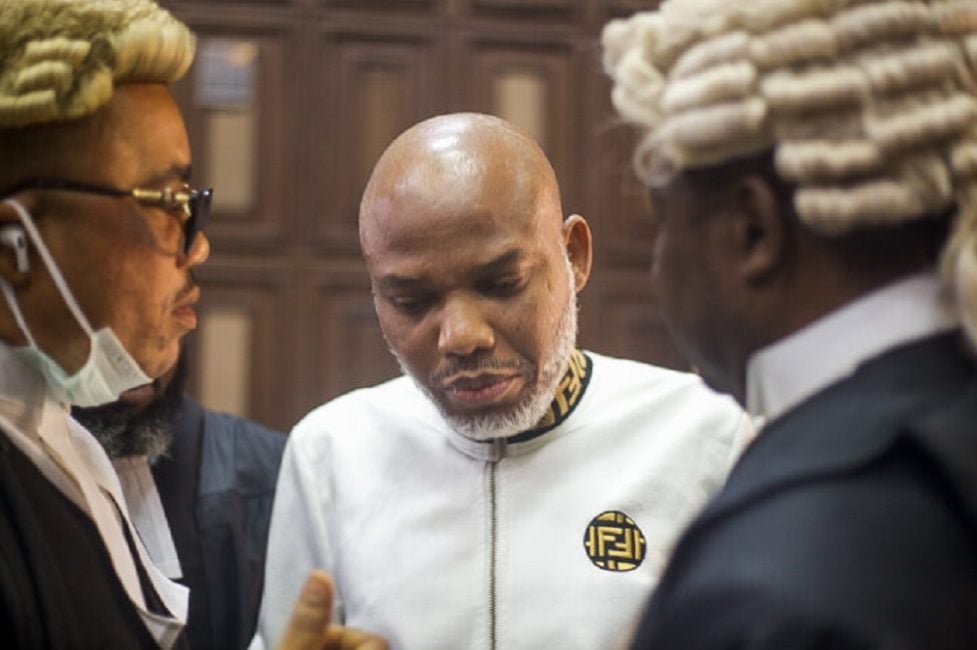Biafra separatist leader Nnamdi Kanu has waived his right to present a defence in his ongoing terrorism trial at the Federal High Court in Abuja.
At Monday’s resumed hearing—scheduled for him to open his defence—Kanu told Justice James Omotosho that, after reviewing the prosecution’s case, he found it “not worth defending.”
This marks the first major legal move since Kanu sacked his team of lawyers led by former Attorney-General Kanu Agabi (SAN) last Thursday and opted to represent himself.
“There is no valid charge against me in the first place, so there is nothing to defend,” Kanu declared, insisting that his trial was unlawful.
Justice Omotosho, however, cautioned Kanu on the implications of waiving his right to defence, urging him to seek expert legal advice before finalising the decision.
A Week of Drama in Court
Kanu’s decision follows a tumultuous week in court proceedings.
- On October 20, human rights activist Omoyele Sowore led a protest in Abuja demanding Kanu’s unconditional release from detention, where he has been held since June 2021.
- The next day, Kanu filed a list of 23 proposed defence witnesses, including both serving and former public officials.
- By Thursday, he dismissed his entire legal team and announced he would personally conduct his defence, requesting an adjournment to prepare.
- On Friday, he said he couldn’t proceed because his former lawyers had not returned his case files. The judge then gave him until Monday to either begin or formally waive his defence.
With the prosecution closing its case in June after presenting five witnesses, Kanu had earlier filed a no-case submission, which the court dismissed.
Judge’s Directive and Next Steps
At Monday’s hearing, Justice Omotosho directed Kanu to file a written address explaining his decision and serve the prosecution accordingly. The court adjourned the matter to November 4–6 for the adoption of final written addresses, based on Kanu’s stance that the prosecution failed to prove its case.
Background
Kanu, leader of the Indigenous People of Biafra (IPOB), was first arrested in 2015 over his secessionist broadcasts advocating an independent Biafran state. He fled Nigeria in 2017 after his home in Afara-Ukwu, Abia State, was raided by soldiers, halting his trial.
He was rearrested in Kenya and repatriated to Nigeria in June 2021, a move later declared illegal by the Court of Appeal, which struck out the charges and ordered his release in October 2022.
However, the Supreme Court in December 2023 overturned that ruling, reinstating the terrorism trial and holding that no Nigerian law bars the use of “illegally obtained evidence.”
Kanu is accused of making inflammatory statements that allegedly incited violence and destruction in Nigeria’s South-East region.
The court’s next session will determine whether the case proceeds to judgment or if further legal steps arise from Kanu’s decision to forgo his defence.








